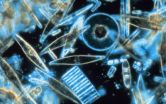(Press-News.org) Tropical Storm Son-tinh soaked the Philippines and is now moving into the South China Sea. NASA's Aqua satellite captured a visible image of the storm as the bulk western half of the storm had already moved over water.
On Oct. 25, 2012 at 0525 UTC (1:25 a.m. EDT) the Moderate Resolution Imaging Spectroradiometer (MODIS) instrument that flies aboard NASA's Aqua satellite captured a visible image of Tropical Storm Sin-Tingh. The image showed that the western half of the storm had already moved into the South China Sea, while powerful thunderstorms in the eastern half were still dropping heavy rainfall over Luzon. Satellite data shows that the strongest bands of thunderstorms are located in the northern quadrant of the storm, with another band to the northeast of the low-level center.
As a result of the eastern half of the storm still being over land, several areas in Luzon are still under Public storm warning signal #1. Those areas under warning include the Luzon provinces of Metro Manila, Bataan, Zambales, Cavite, Batangas, Northern part of Mindoro and Lubang Island.
By 0900 UTC (5 a.m. EDT), Tropical Storm Son-tinh had maximum sustained winds near 45 knots (51.7 mph/83.3 kph). It was located about 100 nautical miles (115 miles/185 km) southwest of Manila, the Philippines, near 14.0 North and 118.9 East. It is moving to the west-northwest near 16 knots (18.4 mph/29.6 kph).
Son-tinh is expected to cross the South China Sea in a northwesterly direction and move south of Hainan Island, China before making landfall in northern Vietnam on Oct. 27. The Joint Typhoon Warning Center expects Son-tinh to strengthen as it crosses the South China Sea.
INFORMATION:
NASA sees Tropical Storm Son-tinh moving into South China Sea
2012-10-26
ELSE PRESS RELEASES FROM THIS DATE:
Study reveals impact of public DNS services; researchers develop tool to help
2012-10-26
A new study by Northwestern University researchers has revealed that public DNS services could actually slow down users' web-surfing experience. As a result, researchers have developed a solution to help avoid such an impact: a tool called namehelp that could speed web performance by 40 percent.
Through a large-scale study involving more than 10,000 hosts across nearly 100 countries, Fabián Bustamante, associate professor of electrical engineering and computer science at Northwestern's McCormick School of Engineering and Applied Science, and his team found that one cause ...
Triclosan needs to be monitored
2012-10-26
This press release is available in German.
Leipzig. Researchers from Germany and Slovakia have pointed out that the chemical triclosan is one of those particularly harmful substances for the ecological status of rivers that are still not sufficiently monitored. With extensive monitoring conducted in the Elbe river basin that was more comprehensive than standard monitoring procedures, concentrations of the chemical at numerous test sites exceeded the predicted no-effect concentration (PNEC) for algal communities up to a factor of twelve. From the 500 river basin-specific ...
Results of the AIDA STEMI MRI sub-study presented at TCT 2012
2012-10-26
MIAMI, FL – OCTOBER 25, 2012 – A study confirmed no differences in various measures of heart damage, according to cardiac magnetic resonance (MRI) imaging, in patients receiving the anti-clotting medication abxicimab directly into the heart (intracoronary) compared to those receiving it intravenously (IV). The results of the AIDA STEMI MRI sub-study were presented today the 24th annual Transcatheter Cardiovascular Therapeutics (TCT) scientific symposium. Sponsored by the Cardiovascular Research Foundation, TCT is the world's premier educational meeting specializing in interventional ...
Report: Bushmeat pushes Southern African species to the brink
2012-10-26
JOHANNESBURG, SOUTH AFRICA (October 25, 2012) – A recent report says illegal hunting of wildlife in South African Development Community (SADC) states can lead to the eradication of many species across extensive areas and even complete ecological collapse.
Africa's iconic large carnivores, such as cheetah, lion, leopard, and wild dog, are particularly vulnerable to this practice, either because they are caught in the bycatch from unselective methods such as snaring, or due to loss of prey. The report says that the scale and severity of the threat is such that, without ...
UC Davis researchers develop new drug delivery system for bladder cancer using nanoparticles
2012-10-26
(SACRAMENTO, Calif.) -- A team of UC Davis scientists has shown in experimental mouse models that a new drug delivery system allows for administration of three times the maximum tolerated dose of a standard drug therapy for advanced bladder cancer, leading to more effective cancer control without increasing toxicity.
The delivery system consists of specially designed nanoparticles that home in on tumor cells while carrying the anti-cancer drug paclitaxel. The same delivery system also was successfully used to carry a dye that lights up on imaging studies, making it potentially ...
New genomics study shows ancestry could help solve disease riddles
2012-10-26
LA JOLLA, CA – October 25, 2012 – Explosive advancement in human genome sequencing opens new possibilities for identifying the genetic roots of certain diseases and finding cures. However, so many variations among individual genomes exist that identifying mutations responsible for a specific disease has in many cases proven an insurmountable challenge. But now a new study by scientists at The Scripps Research Institute (TSRI), Scripps Health, and Scripps Translational Science Institute (STSI) reveals that by comparing the genomes of diseased patients with the genomes of ...
A 'nanoscale landscape' controls flow of surface electrons on a topological insulator
2012-10-26
CHESTNUT HILL, MA (October 25, 2012) – In the relatively new scientific frontier of topological insulators, theoretical and experimental physicists have been studying the surfaces of these unique materials for insights into the behavior of electrons that display some very un-electron-like properties.
In topological insulators, electrons can behave more like photons, or particles of light. The hitch is that unlike photons, electrons have a mass that normally plays a defining role in their behavior. In the world of quantum physics, where everyday materials take on surprising ...
Changing the balance of bacteria in drinking water to benefit consumers
2012-10-26
WASHINGTON, Oct. 25, 2012 — The latest episode in the American Chemical Society's (ACS') award-winning Global Challenges/Chemistry Solutions podcast series reports that scientists have discovered a plausible way to manipulate the populations of mostly beneficial microbes in "purified" drinking water to potentially benefit consumers.
Based on a report by Lutgarde Raskin, Ph.D., in ACS' journal Environmental Science & Technology, the new podcast is available without charge at iTunes and from www.acs.org/globalchallenges.
In the new episode, Raskin explains that municipal ...
Small marine organisms' big changes could affect world climate
2012-10-26
In the future, warmer waters could significantly change ocean distribution of populations of phytoplankton, tiny organisms that could have a major effect on climate change.
Reporting in this week's online journal Science Express, researchers show that by the end of the 21st century, warmer oceans will cause populations of these marine microorganisms to thrive near the poles and shrink in equatorial waters.
"In the tropical oceans, we are predicting a 40 percent drop in potential diversity, the number of strains of phytoplankton," says Mridul Thomas, a biologist at Michigan ...
Small organisms could dramatically impact world's climate
2012-10-26
EAST LANSING, Mich. — Warmer oceans in the future could significantly alter populations of phytoplankton, tiny organisms that could have a major impact on climate change.
In the current issue of Science Express, Michigan State University researchers show that by the end of the 21st century, warmer oceans will cause populations of these marine microorganisms to thrive near the poles and may shrink in equatorial waters. Since phytoplankton play a key role in the food chain and the world's cycles of carbon, nitrogen, phosphorous and other elements, a drastic drop could have ...




